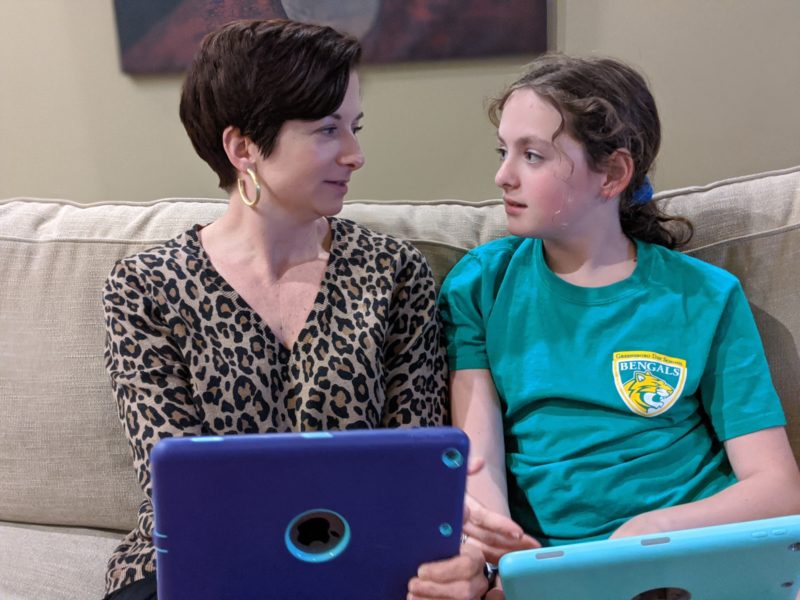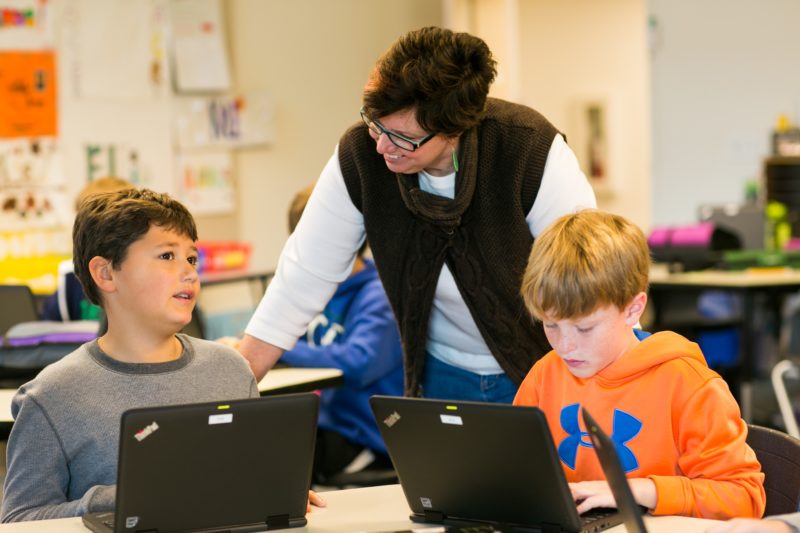Are you Talking Tech with your Middle Schooler?
By Guest Blogger Dr. Dana Smith, Middle School Director, Greensboro Day School
The Common Sense Media report The New Normal: Parents, Teens, Screens and Sleep in the United States (Robb, M. B., 2019). findings suggest that the gap between parent and child technology use has narrowed. It is no longer that parents don’t understand their children’s mobile device use, but they may not always understand the apps that tweens choose (e.g. Tik Tok), but they definitely understand the attraction. In some cases, the roles are reversed. One of the key results presented in this report found that “There has been an 11-point increase in the number of children who think their parents spend too much time on their device (28% in 2016 vs. 39% today).” This result and others in the report point to a need for parents and tweens/teens to talk about their technology use and decide the role that technology will play in the family.
Why is social media so attractive to my child?
How does my screen time impact my child or children?
How can our family discuss boundaries with technology without arguing?
 These are the questions that parents have asked as they help their Middle School students navigate their digital lives and digital well-being. What is more important than the questions that parents ask about their child(ren)’s technology use is the technology conversations that they have with their children. Rather than educating students and parents separately, Greensboro Day School’s Lower and Middle School technology educators and administration implemented new digital citizenship programs for our families. In addition to what we teach during the school day, we offer educational programs for parents to attend with their children. These programs include discussions of parent and child perceptions of each other’s technology use and the creation of family technology agreements.
These are the questions that parents have asked as they help their Middle School students navigate their digital lives and digital well-being. What is more important than the questions that parents ask about their child(ren)’s technology use is the technology conversations that they have with their children. Rather than educating students and parents separately, Greensboro Day School’s Lower and Middle School technology educators and administration implemented new digital citizenship programs for our families. In addition to what we teach during the school day, we offer educational programs for parents to attend with their children. These programs include discussions of parent and child perceptions of each other’s technology use and the creation of family technology agreements.
During these conversations, we learned that Middle School students enjoy teaching their parents about technology. We examined the perceptions that parents and children have of their own and each other’s technology use. Parents and child(ren) found that they had more in common than they thought. Parents also realized that their children are monitoring their parent’s technology use and that they are important role models to their children as their middle schoolers navigate digital tools. These conversations provided families with a common language and information to share. We concluded the evening with the creation of family media agreements that clarified family values as they relate to technology. Often we spend so much time in conflict over technology use that we miss what is most important to being a member of the family.
 What we did at Greensboro Day School can easily be replicated for your family.
What we did at Greensboro Day School can easily be replicated for your family.
Step 1: Parents and children answer questions such as
-
- What do you love about using technology?
- How much time do you think your parent/child spends on screens
a day? - How much time do you think you spend on screens each day?
Answering these questions in private before beginning the conversation allows all parties to answer honestly. For additional prompts, Dr. Delaney Ruston, the creator of the film Screenagers, has a weekly newsletter, “Tech Talk Tuesdays” that provides families with information on current technology topics and questions to ask at the dinner table.
 Step 2: These prompts naturally lead to discussions about and the creation of family media agreements. These agreements should have guidelines for parents and children. There are many templates for agreements present online, including Common Sense Media. These templates will need to be modified for your family-specific needs and with the developmental stage of a child. (Note: It is much easier to ease the guidelines than it is to make them stricter.)
Step 2: These prompts naturally lead to discussions about and the creation of family media agreements. These agreements should have guidelines for parents and children. There are many templates for agreements present online, including Common Sense Media. These templates will need to be modified for your family-specific needs and with the developmental stage of a child. (Note: It is much easier to ease the guidelines than it is to make them stricter.)
We believe that starting with a family conversation and partnering with your child (especially a young tween) can enhance the family technology experience and family relationships. Whether examining your children’s digital footprint or your own, the value of any analysis is the conversations that it provokes. A good conversation that feels fair and even will most often result in a family dynamic around family technology that benefits the entire family.
Sponsored by Greensboro Day School:
Website: greensboroday.org
Facebook: facebook.com/GDSBengals
